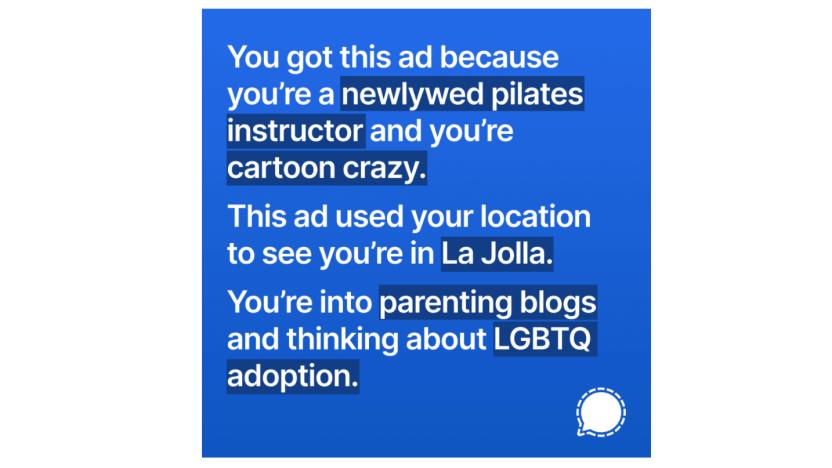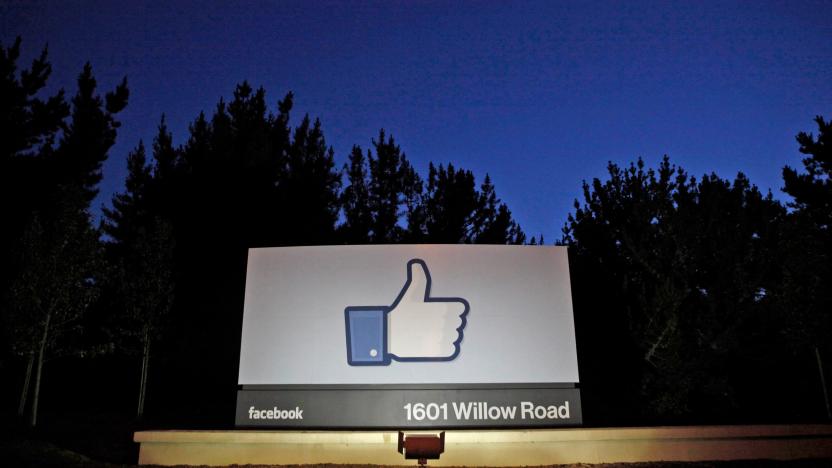Online Advertising
Latest

How a civil rights group is holding Europe's online ad industry to account
Campaigners are urging regulators to take action against a system they feel is on shaky legal ground.

European Commission may soon open an antitrust investigation into Facebook
The EU is readying a formal antitrust probe into Facebook's classified ads operation.

Signal tried to use Facebook's targeted advertising data against it
Signal is accusing Facebook of disabling its ad account after it tried to expose its ad targeting practices.

Facebook's ad library is incorrectly showing political ads as 'active'
In advance of the 2020 US presidential election, Facebook said it would temporarily ban political, electoral and “social issue” advertisement starting on November 4th, the day after the election.

Google will likely win EU approval for its $2.1 billion Fitbit deal
Google is reportedly on track to win EU antitrust approval for its $2.1 billion acquisition of Fitbit.

Microsoft takes $6.2 billion of lumps on fizzled aQuantive online ad acquisition
Among all the Windows 8, WP8 and Surface excitement of late, Redmond has also dropped a chunk of less shiny happy news: its online services division is taking a goodwill writeoff of $6.2 billion as a result of its ill-fated aQuantive acquisition in 2007. Not coincidentally, that's almost exactly what it paid for the company, which it brought in to create pre-Bing online ad revenue -- back when Mountain View was eating even more of its lunch in search. The software giant said that aQuantive didn't "accelerate growth" as much as intended, although it added that it still provides assets for its internet advertising activities. With the advent of tablets and smartphones since then, it seems unlikely we'll see any of its now-quaint tech -- like shopping cart-mounted computers -- again.

GroupM and Nielsen work to combine online and TV metrics
For too long Nielsen ratings have dealt with TV commercials and web ads as completely separate entities. Episodes of your favorite show streamed through a service like Hulu or from the channel's website often didn't get factored into the pricing and sales of television ads, and vice versa. That is about to change, however, as the media monitoring company has joined forces with GroupM to create Nielsen Cross-Platform Campaign Ratings. The new product will combine its Nielsen Online Campaign Ratings, which measures internet advertising, with its traditional TV monitoring service to create a medium-agnostic tool for creating media metrics. Hopefully, with a unified pool of data and better monitoring services, content producers may be more likely to experiment with online distribution -- especially if they influence the flagship ratings. Check out the complete PR after the break.

Yahoo to retain search data for 18 months, says it's in your best interest
We've heard this one before: a seemingly well intentioned corporation makes promises to uphold user anonymity, but when market pressure proves too much to handle, it's left to weigh the benefits of privacy over profit. Well, it looks like Yahoo's not immune to such goings on, as it's just announced that it will renege on its previous data retention promises and hold on to raw search data for 18 months. That's a pretty significant change, as the previous policy boasted data retention limits of only 90 days. If you ask Yahoo, though, it's just good business. In a post to its policy blog, Anne Toth said "we will keep our log file data longer than we have been – offering consumers a more robust individualized experience – while we continue our innovation in the areas of transparency and choice to protect privacy." We suspect "more robust individualized experience" actually means more aggressive targeted ads, but we'll just have to wait and see. The new policy goes into effect this July.

One in ten couch potatoes are really task chair potatoes
A study by the Convergence Consulting Group, aptly titled "The Battle for the North American Couch Potato," shows that nine percent of full-episode TV programs are being soaked up in front of a computer. The figure is expected to rise to 23-percent by 2010, and the study show where there's room for growth -- full-length content. The task chair potato's diet consists of short clips, with a full 75-percent of the clips originating from TV content. Obviously, people like the content being pumped out by the studios, but where are the profits? We've seen evidence that online ads are just as effective as broadcast ones, so the question becomes how studios can use online distribution to increase rather than simply shift profits. So where do you think the tipping point is?






